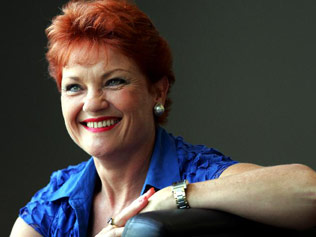
Media reform must be rushed through while regional media is ‘viable’ says Senate committee chair
The man heading up the latest media reform Senate hearings has warned changes to existing legislation must be rushed through before regional broadcasters stop being “commercially viable”.
 Speaking to Mumbrella on the sidelines of the ASTRA conference Senator James Paterson, who was part of the original reform committee, said further changes beyond the reach and two-out-of-three rules could be made at a later date.
Speaking to Mumbrella on the sidelines of the ASTRA conference Senator James Paterson, who was part of the original reform committee, said further changes beyond the reach and two-out-of-three rules could be made at a later date.
That would deal a blow to the pay TV industry which is currently lobbying to have issues around anti-siphoning and over-the-top players and spectrum dealt with under the same package.
Most major media companies are pushing for changes to laws restricting how many types of media they can own and how much of the population they can reach as they seek to merge regional and metropolitan businesses in a bid to fight global online businesses like Facebook, Google and Netflix.
Senator Paterson told Mumbrella: “It is time sensitive, particularly for the regional broadcasters that this be dealt with. Then we have the capacity to deal with some other more medium term things like anti-siphoning and I’m very keen, personally, that we look at these things , but I think that’s better done after this urgent thing is dealt with.”
“This is very time sensitive and if you listen to the regional broadcasters they very persuasively make the case that there is not a lot of time for them to remain commercially viable, so we have to, for their viability, do this,” he added.
“But once this is done there is nothing stopping us then revisiting wider issues in media regulation, and I think siphoning is probably at the top of that list.”
While the government was due to pass a raft of reforms earlier this year that was stalled by an early election, which saw a shake up of the Senate and a number of cross-benchers such as Pauline Hanson and Derryn Hinch elected. It is unclear where they stand on the reforms.
Even with the make-up of the new Senate, Paterson does not believe there will be major changes requested by the Senators themselves, despite the reforms being sent back for more scrutiny by the committee just a few months after they were last scrutinised.
“My view is the best and most likely path for this legislation to proceed is with Labor support and without that it would be very difficult, because as you say, then there would need to be a lot of negotiation with the cross-bench on every aspect of it and so I’m hopeful we will have the bipartisan consensus on this and we can move this part of the agenda,” Paterson told Mumbrella.
“I don’t expect there to be any difference between the committee evidence that we hear and the report that we hand down at the end of the process. It’s a matter of record that we oppose this being referred to the committee again.
“We don’t feel like enough has changed between only a few months ago when we did it once, but Labor and the Greens and some of the cross-bench referred it to the committee again and so we have to go through the process and we will go through the process.”
He accused Labor of stalling for time before it makes a decision about supporting the reforms.
“It seems to me more likely that Labor has referred it to the committee because it is putting off a making a decision about the legislation and it is unable to decide what it wants to do with the legislation so we have to go through this process again to allow it the time to do that.”
Speaking on a panel on the media reforms at the ASTRA conference in Sydney, Paterson offered a warning that media companies presenting to the new media reform committee needed to be upfront about what they were seeking and why.
“As a general observation about the participation of media companies in the enquiry, just generally, in our work as parliamentarians when we are approached by people representing companies and industry groups, I think it’s best to be upfront about the interest you represent and how you represent it,” Paterson told the conference.
“We can become quite cynical when people come and represent themselves – as if they are only here for good policy and the public interest, and of course there is no commercial interest in (the outcome).
“We are not naive, we do understand you have got a commercial interest to represent and if you’re upfront about that and honest and say ‘we think you should go for these public policy reasons but we will also benefit from this, and this is why’, then you are going to be taken much more seriously and you are going to have much more credibility.
“One of problems in this reform area, more than any other, is that I think a lot of players participate in a very strategic way. So, if media reform has no impact on them but it damages their competitors then they might go slow and slow it down and be an obstacle. But if it benefits them but it benefits their competitors more, they might be a bit more wishy-washy in their approach.”








If this little IPA mouthpiece says then it must be true
One would hope that getting it right is more important than getting it passed.